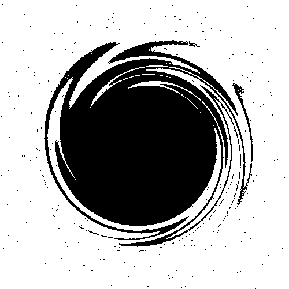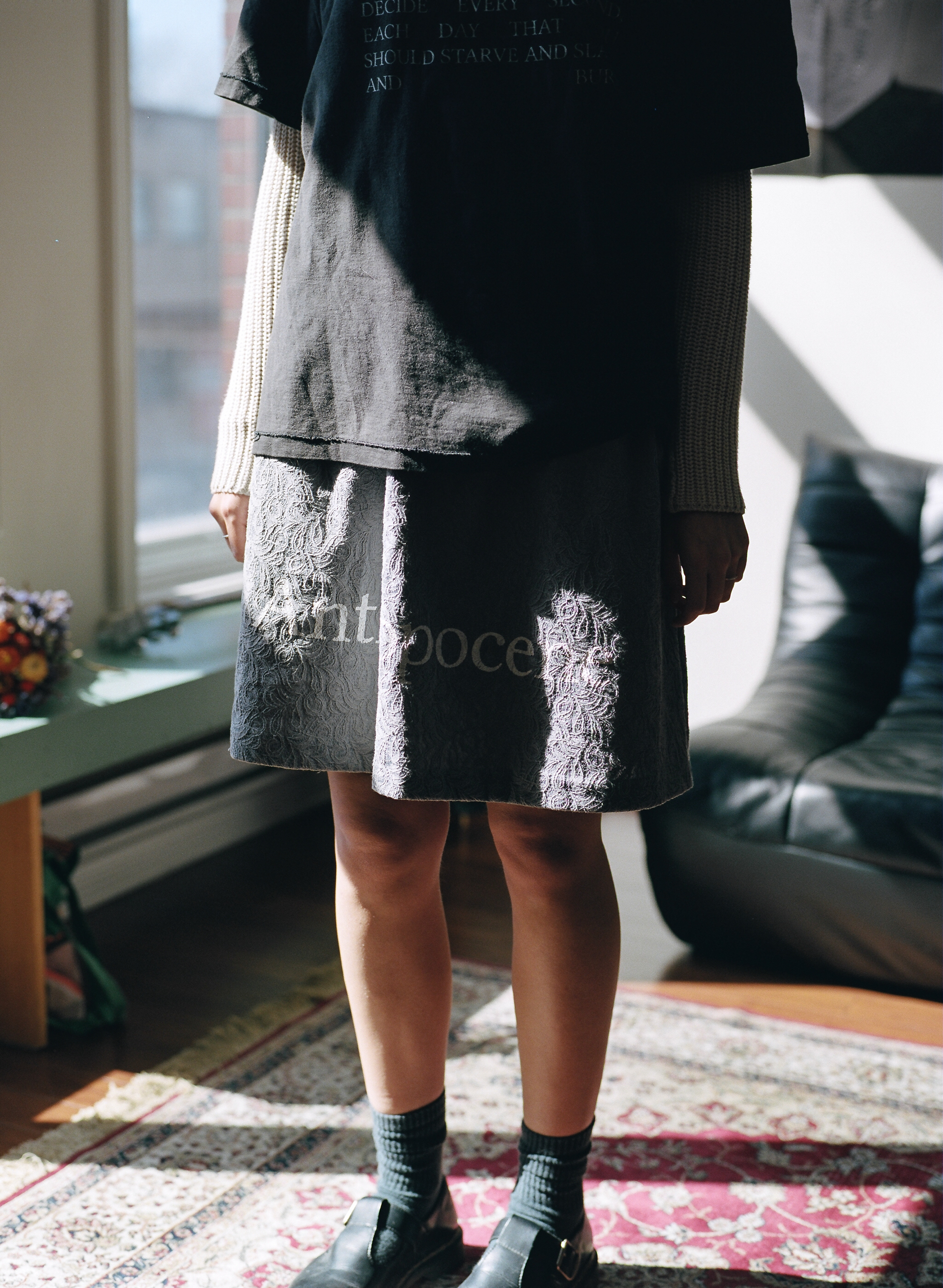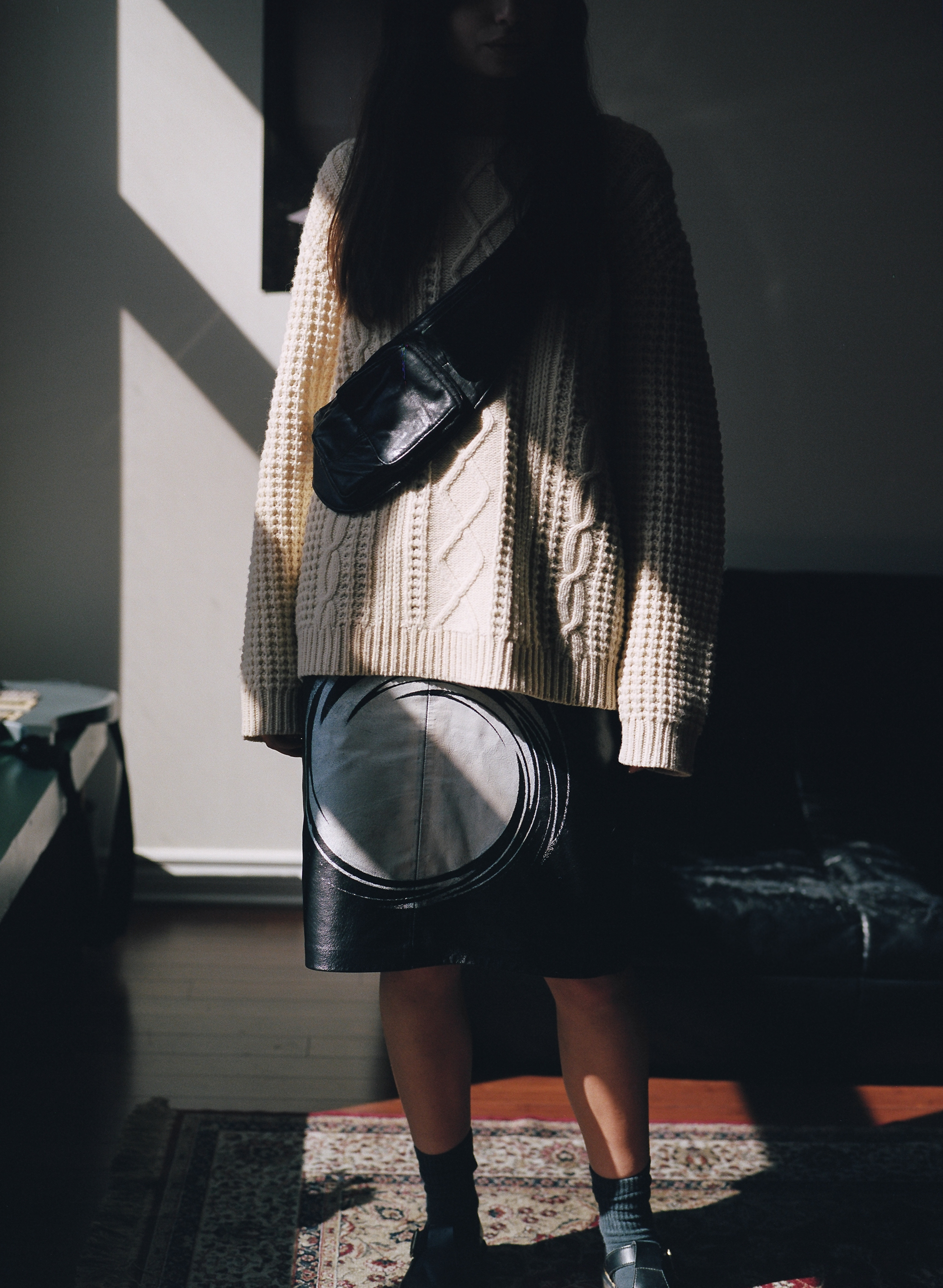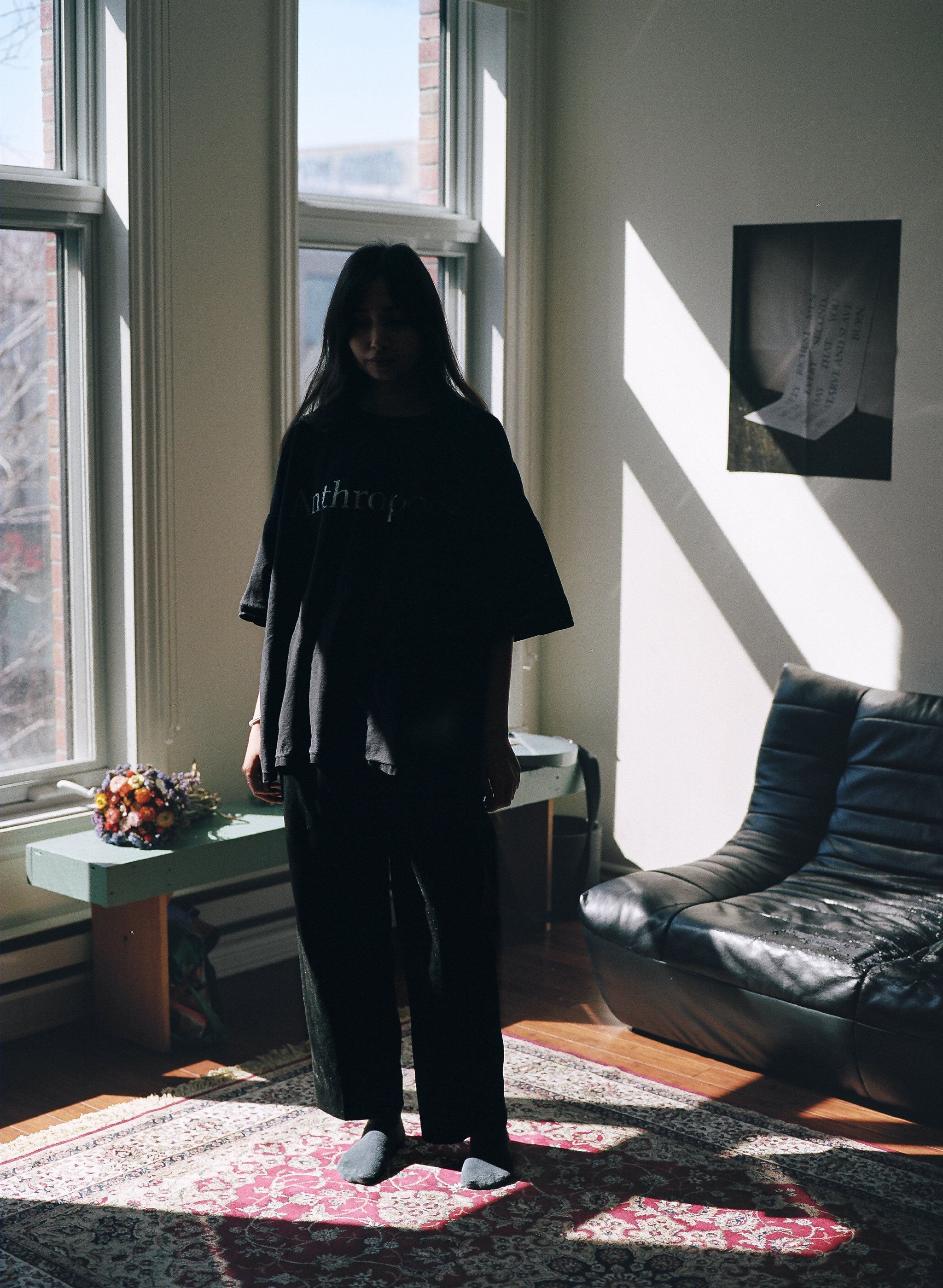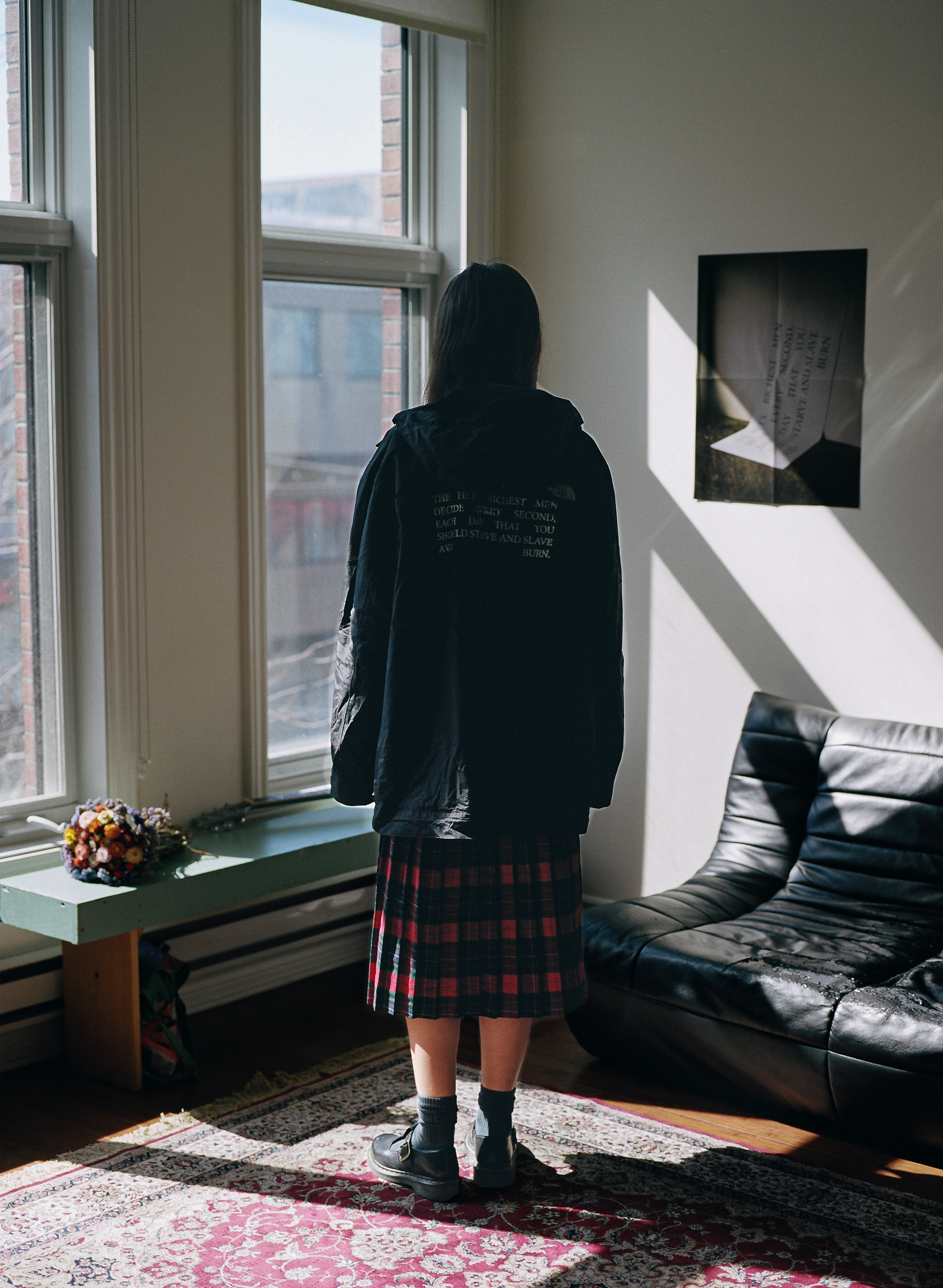Anthropocene
Nothing here is new.
“I am not sure that beyond the work of radical poets, I’ve ever seen much mention in literature that a car requires gas, that the gas requires the oil industry, the oil industry requires imperialist war, etc.”
Fashion produces 10% of humanity's carbon emissions.
Forty-two people hold over half the world’s “wealth”.
Fashion is the same shit over and over.
“Our organizing must aim for a balance between two strategic goals. First, we need initiatives to radically transform the social structures of the world to eliminate the systems of oppression like capitalism, imperialism, white supremacy, patriarchy and heterosexism that confine us to states of oppression and exploitation. Second, we need initiatives to transform ourselves and our communities through autonomous, self-reliant institution building, resource maximization, resource development, and community care.”
Fashion produces 10% of humanity's carbon emissions.
Forty-two people hold over half the world’s “wealth”.
Fashion is the same shit over and over.
“Our organizing must aim for a balance between two strategic goals. First, we need initiatives to radically transform the social structures of the world to eliminate the systems of oppression like capitalism, imperialism, white supremacy, patriarchy and heterosexism that confine us to states of oppression and exploitation. Second, we need initiatives to transform ourselves and our communities through autonomous, self-reliant institution building, resource maximization, resource development, and community care.”
Climate Change
We’re all aware something must be done to prevent the most catastrophic consequences of climate change, but feel powerless to affect anything on a meaningful scale. Fashion offers a quickly influenced portion of global culture we all take part in.
Fashion
We generally buy new clothes to show belonging, avoid ridicule and to feel empowered. We don’t need new clothing production to do this. Instead, we need better fashion and a better culture surrounding it.
I believe there already exists enough clothing and material to create new fashion to meet our needs. And through elevating “old” clothing we can empower people whether they are in garments that have been recontextualized or not.
Because wealthy people lack innate superiority over the general population, many struggle with justified feelings of inadequacy in context of their position atop the power structure of society. In order to easily separate themselves from the poor and each-other, they require constantly changing fashion styles. This creates a hastening cycle as the public gains increasing access to clothing that copies the fashions of the wealthy. The luxury industry takes advantage of this insecurity by creating culture that defines “ideal” clothing items, ages and body types to manipulate their customers.
The broader culture then conflates these manufactured ideals with “what makes people desirable”, instead of “what makes someone who has it all insecure enough to keep giving luxury companies money”.
I believe there already exists enough clothing and material to create new fashion to meet our needs. And through elevating “old” clothing we can empower people whether they are in garments that have been recontextualized or not.
Because wealthy people lack innate superiority over the general population, many struggle with justified feelings of inadequacy in context of their position atop the power structure of society. In order to easily separate themselves from the poor and each-other, they require constantly changing fashion styles. This creates a hastening cycle as the public gains increasing access to clothing that copies the fashions of the wealthy. The luxury industry takes advantage of this insecurity by creating culture that defines “ideal” clothing items, ages and body types to manipulate their customers.
The broader culture then conflates these manufactured ideals with “what makes people desirable”, instead of “what makes someone who has it all insecure enough to keep giving luxury companies money”.
Culture
Most people’s confidence is destroyed by their parents before they are able to develop a sense of self and style. This causes them to seek invisibility, or provocation. Dressing and behaving in a manner to avoid inspiring an insult from their guardian, or designed to purposely piss that guardian off, aware abuse is unavoidable.
This continues into adulthood where standing out in the office or on the street stirs the same feelings from ones youth. I think that by learning to understand our personal and social context, we can begin to express ourselves without fear of embarrassment. By creating a culture of local clothing redistribution, maintenance and information sharing we can move fashion away from screaming “Look how good I can buy things advertised to me!” or “Look how unlike I am to all the people doing that!”.
I believe creating and sharing affordable clothes that help us avoid ridicule and feel empowered can create a sense of community that is inclusive, not exclusive.
This continues into adulthood where standing out in the office or on the street stirs the same feelings from ones youth. I think that by learning to understand our personal and social context, we can begin to express ourselves without fear of embarrassment. By creating a culture of local clothing redistribution, maintenance and information sharing we can move fashion away from screaming “Look how good I can buy things advertised to me!” or “Look how unlike I am to all the people doing that!”.
I believe creating and sharing affordable clothes that help us avoid ridicule and feel empowered can create a sense of community that is inclusive, not exclusive.
Mending Night
In order to create community we must first find shared values. All of our clothes break down and all of us need to contribute to and be helped by a consistent group of people.
Upcycle clothing projects have the potential to add to the cycle of consumerism and want for constant new fashion if they lack proper ethics shared between the creators and the people that wear the clothes. By shifting the focus from the purchasing of new (or upcycled) items to the maintaining of already owned items, along with learning to celebrate the objects that we maintain, we can tune culture twoard real sustainability. In addition, providing platforms for self expression and sharing create a space which helps these values become useful to the people participating.
By coming together to mend our broken clothes we can begin to generate real connections, build skills and take a step towards normalizing mending into larger culture.
Upcycle clothing projects have the potential to add to the cycle of consumerism and want for constant new fashion if they lack proper ethics shared between the creators and the people that wear the clothes. By shifting the focus from the purchasing of new (or upcycled) items to the maintaining of already owned items, along with learning to celebrate the objects that we maintain, we can tune culture twoard real sustainability. In addition, providing platforms for self expression and sharing create a space which helps these values become useful to the people participating.
By coming together to mend our broken clothes we can begin to generate real connections, build skills and take a step towards normalizing mending into larger culture.
